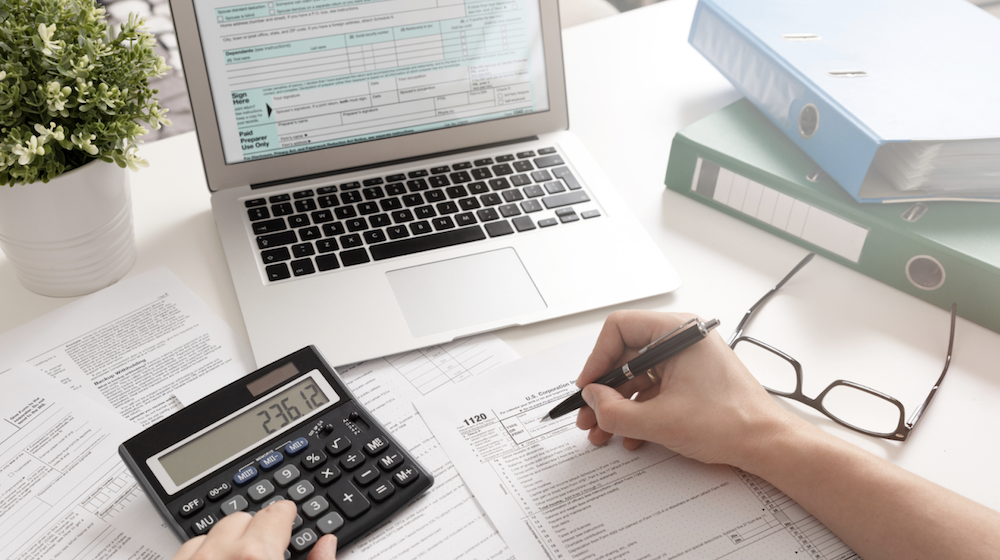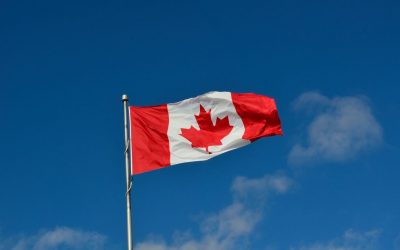Ah taxation, what a fascinating (but complex...) subject! You're an expatriate in Canada and you're wondering how to file your first tax return in Canada, here's a short guide to help you familiarize yourself with the country's tax process. It's important to be well-informed about your tax obligations, so you don't miss out on anything.

How do taxes work in Canada?
First, let's take a look at how the tax system works in Canada. In order to finance our public services and government social programs, amounts arededucted at source, i.e. from taxpayers' wages.
It's important to note that Canada's tax system is both federal and provincial. federal and provincial. This means that part of the money deducted from your salary goes to the federal government, and part to the provincial government. The tax rate varies according to your income and your province of residence.
ℹ️ To better understand the different levels of taxationthe federal government presents a short video on the subject.
1️⃣ The first step: determining your tax residence
First, you need to determine your tax residency in Canada. Your tax residency status will determine how you will be taxed in Canada. This is because Tax residency and permanent residency are two very different statuses. There is the 183-day rule day rule, which explains that if you have resided in Canada for a period of 183 days or more during a taxation year, you may be considered a deemed resident of Canada and have to pay tax. It's important to carefully consider the different situations mentioned on the Canadian government's website, as it's possible that the rules of your country of origin and those of Canada both apply, and that you could be doubly taxed. Fear not, there are tax treaties between countries to avoid having to pay tax on the same income in two different countries.
If you're wondering about the Quebec tax return, you're probably wondering about your retirement!
👉 We answer all your questions in this this article on retirement in Canada ! 👈
2️⃣ The second stage: document collection
Secondly, I suggest that you organize your documents properly to avoid a headache when you file your first tax return in Canada. Here is a list of documents that are generally requested:
1. T4 slip and Relevé (RL-1) : The T4 will be provided by your employer (or on your online payroll platform), showing the income you've earned and the taxes deducted at source. This slip is for your federal income tax return to the Canada Revenue Agency (CRA). At the provincial level, if you worked in the province of Quebec, we'll also provide you with a Relevé 1, which contains the same information as the T4, but for your Revenu Québec return.
2. Sheet T5 : If you have investment incomeIf you have investment income, you'll receive a slip from your financial institution (bank) or the company where you have investments.
3. Medical receipts: You'll need to keep receipts for your prescription drugs, dental care, vision care, etc., because medical expenses can be counted toward a claim. In fact, medical expenses may be eligible for a tax credit. Then, if you have a group insurance plan (mutuelle) that covers part of your health care, you can still declare the portion that is not covered. portion not covered to obtain a tax credit. You can also present your proof oftravel insurance such as Globe PVT or Chapka. You can declare the full amount of your two-year insurance for the first year, then nothing the next. Or you can declare half in one tax year, and the other half the following year.

4. Childcare and tuition receipts: If you have children, be sure to keep receipts for daycare and tuition fees, as they may be eligible for tax credits.
5. Foreign income statements : If you earn income abroad, you'll need to provide proof of that income (bank statements, tax form from the country in question). In Canada, you must declare worldwide incomeThis includes income from France or any other country. You'll need to include any foreign income or assets, such as bank accounts, real estate or foreign investments. As an expatriate, and therefore a newcomer to Canada, you'll be asked to declare the income you've received income you received before arriving in Canada. These amounts are not considered worldwide income and will not be taxed in Canada. That said, they may be used to calculate tax credit adjustments.
6. Your SIN : This is your Social Insurance Number, which you'll get when you arrive in Canada.
7. A specimen cheque: This will allow you to sign up for direct deposit and get any tax refunds automatically deposited into your chequing account.
Finally, it's important to remember that every situation is unique and personal. We therefore advise you to consult a chartered accountant or contact theCanada Revenue Agency (CRA) for information specific to your expatriate situation. What's more, to find out about the various tax credits to which you may be entitled, you can find information on the Revenu Québec and the Canada Revenue Agency.

3️⃣ The third step: filing your first Canadian tax return
You can complete your tax return using tax software authorized by the Canada Revenue Agency. Alternatively, if you want peace of mind, you can hire an accountant to prepare your tax return based on the documents you provide. You'll also need to make sure you meet the deadline to file your tax return, which is usually around April 30th.

Do you work in the IT sector and are you planning to move abroad soon? Don't hesitate to apply for our support program ! Maplr may be able to help you make the most of your new life in Canada!


